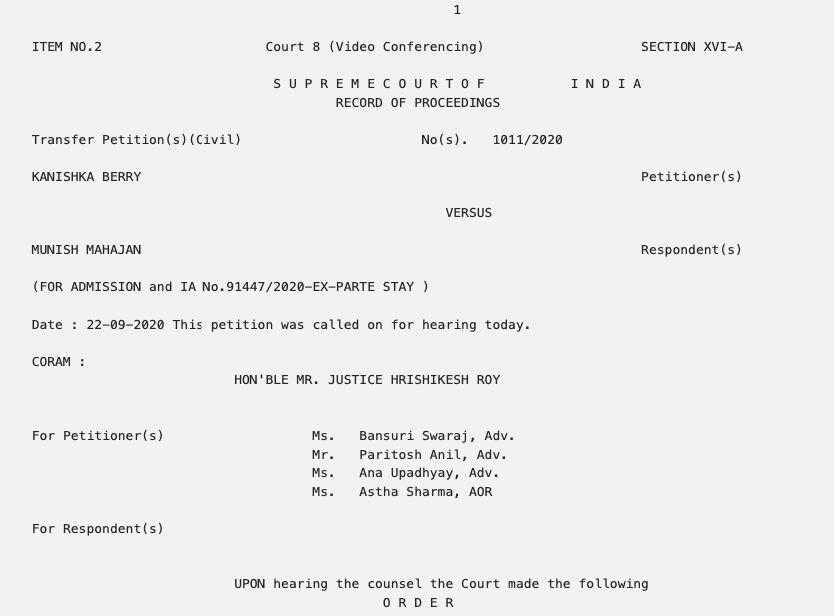The case of Kanishka Berry vs. Munish Mahajan revolves around a transfer petition filed in the Supreme Court of India seeking the transfer of a case for Restitution of Conjugal Rights from the Court at Ludhiana to a competent Court at Tis Hazari Complex, Delhi. The petitioner, Kanishka Berry, represented by her counsel, seeks the transfer due to difficulties in attending court proceedings in Ludhiana, as she is currently undergoing treatment in Delhi.
Background
Kanishka Berry, the petitioner, alleges that her husband, Munish Mahajan, deserted her on 31st May 2020, and she is currently dependent on her parents for support. She is undergoing treatment at Delhi’s Ganga Ram Hospital, making it challenging for her to appear in person at the Ludhiana court. On the other hand, Munish Mahajan is described as the owner of factories with a significant income, indicating that he should not face any difficulty if the case is transferred to Delhi, where Kanishka has also filed a complaint before the CAW Cell.
Key Arguments
- Petitioner’s Argument: Kanishka Berry’s counsel argues that the transfer is necessary for the convenience of the petitioner, who is undergoing medical treatment in Delhi and is unable to travel to Ludhiana for court proceedings.
- Respondent’s Position: The respondent, Munish Mahajan, did not appear in court, and thus no arguments or objections were presented on his behalf.
Court’s Observations
The court, presided over by Hon’ble Mr. Justice Hrishikesh Roy, took note of the petitioner’s circumstances, including her medical treatment and dependence on her parents. The court also considered the respondent’s alleged financial status and the existence of a complaint filed by the petitioner before the CAW Cell in Delhi.
Court’s Decision
The court issued notice to the respondent, returnable in four weeks, and ordered a stay of further proceedings in the case titled “Munish Mahajan Vs. Kanishka Berry,” which was pending before the Principal Judge, Family Court, Ludhiana. This decision was based on the court’s recognition of the petitioner’s medical condition and the practical difficulties she faced in attending court in Ludhiana.
Conclusion
The Supreme Court’s decision to issue notice to the respondent and stay further proceedings demonstrates a consideration for the practical challenges faced by the petitioner, Kanishka Berry. The court’s action aligns with the principle of ensuring fairness and accessibility in legal proceedings, particularly in cases involving medical conditions or other compelling circumstances.
References: https://indiankanoon.org//doc/181328276/
